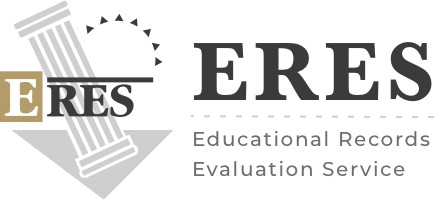Blog
Filipino Nurses in the US: Your Complete Guide to RN Licensure

The United States has seen a significant rise in Filipino nurses contributing to its healthcare system. This trend highlights the need for clear and comprehensive guidance on obtaining Registered Nurse (RN) licensure for those from the Philippines.
Navigating this journey requires understanding various critical steps, from meeting educational prerequisites to passing licensure examinations.
This blog will delve into each stage of this process, discussing credential evaluation services, preparation for the NCLEX-RN exam, state-specific licensing requirements, and the unique employment opportunities and challenges Filipino nurses may face in the US.
We aim to provide a complete guide that simplifies this complex journey for aspiring Filipino nurses.
What Are The Educational Prerequisites For Filipino Nurses?
The educational prerequisites for Filipino nurses who wish to practice as Registered Nurses in the United States generally include the following key elements:
Bachelor of Science in Nursing Degree:
Bachelor of Science in Nursing degree from a recognized institution in the Philippines is a must for all nurses coming to the US. The program typically spans four years and includes theoretical coursework and practical clinical training.
Licensure as a Registered Nurse in the Philippines:
Before applying to practice in the US, Filipino nurses usually need to be licensed in the Philippines. This involves passing the Philippine Nursing Licensure Examination administered by the Professional Regulation Commission (PRC).
English Proficiency Test:
Since English is the primary language used in US healthcare settings, Filipino nurses are often required to demonstrate their proficiency in English. Exams like the International English Language Testing System or Test of English as a Foreign Language or the are commonly accepted.
Credential Evaluation:
Filipino nurses must undergo a credential evaluation to verify that their education and licensure meet US standards. This is where CES nursing reports play a crucial role. These reports assess a nurse’s education, licensure, and registration to ensure they align with US nursing standards.
NCLEX-RN Eligibility:
To sit for the National Council Licensure Examination for Registered Nurses (NCLEX-RN), which is required for practicing as an RN in the US, nurses must first meet the eligibility criteria set by the nursing board of the state where they wish to work.
Filipino nurses must research the specific requirements of the US state where they plan to practice, as these can vary. Additionally, staying updated with any changes in licensure and immigration policies that may affect their eligibility is crucial.
Tips And Strategies For Filipino Nurses To Prepare For The Nclex-RN Exam
Preparing for the NCLEX-RN can be challenging, especially for international nurses. Here are some tips and strategies tailored explicitly for Filipino nurses:
Understand the Format of the NCLEX-RN:
Familiarize yourself with the structure of the NCLEX-RN. It’s a computer-adaptive test ranging from 75 to 265 questions, covering various topics essential to nursing practice.
Review Core Nursing Concepts:
Focus on core nursing topics such as pharmacology, medical-surgical nursing, pediatrics, maternity, and psychiatric nursing. These areas are fundamental to the exam.
Utilize NCLEX Review Materials:
Invest in reputable NCLEX review books online courses or attend review classes. Many resources are tailored to the NCLEX format, offering practice questions and simulations.
Practice with NCLEX-Style Questions:
Regularly practice with NCLEX-style questions to get accustomed to the format and complexity of the questions. Utilize online platforms or mobile apps that offer practice questions and rationales.
Join Study Groups or Online Forums:
Connect with other Filipino nurses preparing for the NCLEX-RN. Online forums or study groups can provide support, share resources, and offer insights into effective study strategies.
Develop Critical Thinking and Test-Taking Skills:
Focus on improving your critical thinking skills, as the NCLEX-RN examines your ability to apply knowledge in clinical settings. Learn effective test-taking strategies, such as carefully eliminating wrong answers and analyzing questions.
Create a Study Schedule:
Organize your study time effectively. Create a realistic schedule that balances intense study periods with breaks to prevent burnout.
Understand Cultural Differences:
Be aware of differences in healthcare practices and terminologies between the Philippines and the US. This knowledge is crucial for interpreting questions correctly.
Seek Support When Needed:
Don’t hesitate to seek help if you struggle with certain topics. Reach out to mentors, instructors, or colleagues who can provide guidance.
Prepare for the Exam Environment:
Familiarize yourself with the testing environment. Understand the procedures for the exam day, including what you can bring into the test center and the check-in process.
Stay Informed about Application Procedures:
Keep track of the application process for the NCLEX-RN, including submission deadlines, required documentation, and eligibility criteria specific to Filipino nurses.
Take Care of Your Well-being:
Ensure you are well-rested, eat healthily, and engage in stress-relief activities. Your physical and mental state will affect your study and exam performance.
Remember, consistency and perseverance are key. Preparing for the NCLEX-RN is a marathon; staying motivated and focused is essential throughout your preparation.
In Conclusion
The journey for Filipino nurses seeking RN licensure in the United States, though challenging, is a pathway filled with rewarding opportunities. As you navigate the educational prerequisites, credential evaluations, and the NCLEX-RN exam, remember that each step brings you closer to a fulfilling career in a diverse and dynamic healthcare environment.
We encourage you to embrace this journey with determination and optimism. Your expertise, unique perspective, and commitment are invaluable assets to healthcare communities across the US. Dream big, prepare diligently, and step confidently towards this exciting new chapter in your professional life.
Start Now
ERES
Educational Records Evaluation Service helps Non-US educated individuals to receive their US equivalences with our credential evaluation reports.
Services
Contact us
Tue - Fri: 10:00 to 16:00 ( PST )
4773 Mangels Blvd, Fairfield, CA 94534, USA.
© 2025 Educational Records Evaluation Service. All rights reserved.











